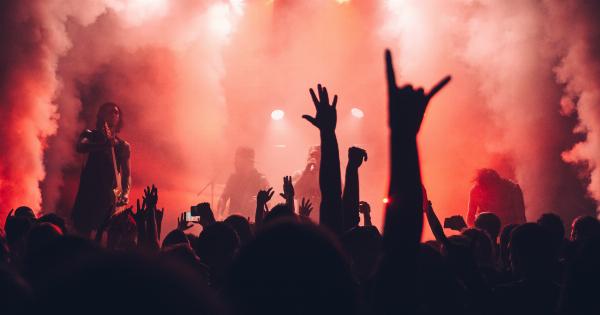Heavy drinking can lead to various health problems such as liver disease, high blood pressure, and even cancer. It can also have an impact on an individual’s professional life, affecting their occupational performance and productivity.
In this article, we will explore the occupations of the heavy-drinking population.
Hospitality industry
The hospitality industry is one of the most common industries where heavy drinking is prevalent. This industry includes jobs such as bartenders, servers, and chefs.
Bartenders and servers are known to consume alcohol while on the job, leading to high rates of heavy drinking. On the other hand, chefs may turn to alcohol as a coping mechanism for the high-stress environment they work in.
Construction industry
The construction industry is another industry where heavy drinking is common. The physically demanding nature of the job can lead to high levels of stress and fatigue.
This, coupled with the social norms of heavy drinking within the industry, can lead to alcohol abuse. This industry includes jobs such as construction workers, electricians, and plumbers.
Artists and entertainers
Artists and entertainers are also known to have high rates of heavy drinking. The pressures of the entertainment industry, including long hours and irregular schedules, can lead to stress, leading some to self-medicate with alcohol.
This industry includes jobs such as musicians, actors, and writers.
Law enforcement
Law enforcement is an industry where heavy drinking is also prevalent, though it is typically covert. Many law enforcement officers work in high-stress environments and are at risk of developing post-traumatic stress disorder (PTSD).
Heavy drinking can be used as a coping mechanism for PTSD, leading to alcohol abuse.
Healthcare industry
The healthcare industry also has high rates of heavy drinking, particularly among nurses and physicians. Many healthcare professionals work long hours, which can lead to burnout and high levels of stress.
This, coupled with the easy accessibility of prescription drugs, can lead some to turn to alcohol as a coping mechanism.
Office settings
While heavy drinking may not be as prominent in office settings, certain positions, such as sales representatives, can be at risk of developing alcohol abuse.
Sales representatives may be required to entertain clients and may feel pressure to participate in the heavy drinking culture in the industry.
Military
The military is another industry where heavy drinking is prevalent. Active-duty military personnel have a higher rate of alcohol abuse compared to the general population.
This may be due to the high-stress nature of the job, frequent deployments, and exposure to combat.
Transportation industry
The transportation industry includes jobs such as truck drivers, airline pilots, and train conductors. These positions often require long hours and irregular schedules, leading to high levels of stress and fatigue.
Heavy drinking may be used as a coping mechanism for the stress associated with these jobs.
Entrepreneurs
Entrepreneurs are also known to have high rates of heavy drinking. The high-stress environment of starting and running a business, coupled with the social norms of networking and entertaining clients, can lead to alcohol abuse.
Service industry
The service industry includes jobs such as hairdressers, nail technicians, and massage therapists. Similar to the hospitality industry, the social norms of heavy drinking within the industry can lead to alcohol abuse among service industry workers.
Conclusion
While heavy drinking can lead to various health problems, it can also have a significant impact on an individual’s occupational performance and productivity.
Many industries have high rates of heavy drinking, including the hospitality, construction, and entertainment industries. Recognizing the risk factors associated with heavy drinking in the workplace is the first step in preventing alcohol abuse.





























